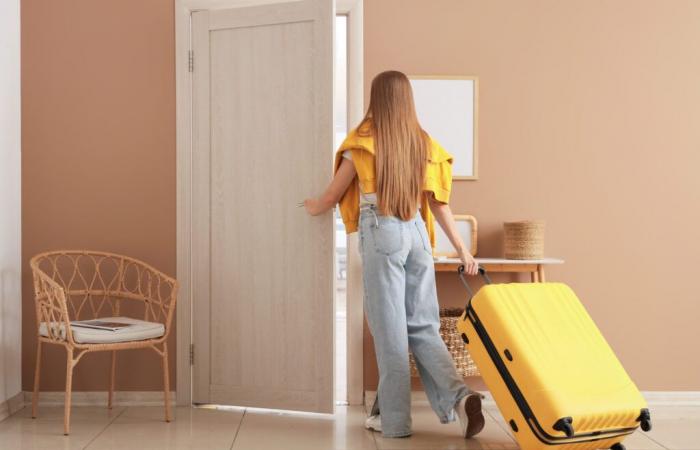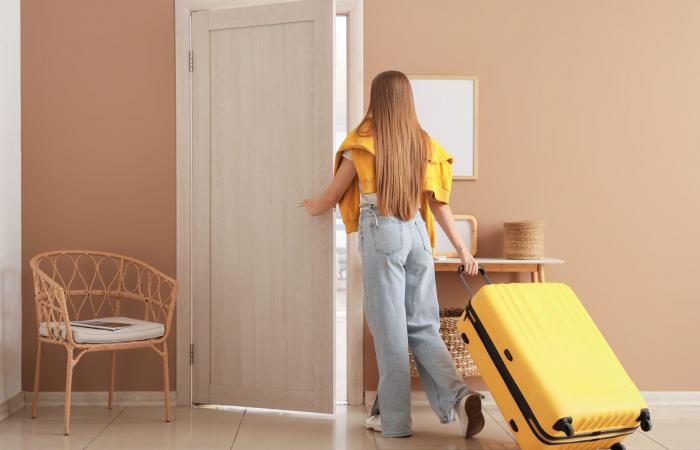To encourage permanent rental to the detriment of tourist rental, the law The Meur of November 19, 2024 introduces a series of measures: less favorable taxation for furnished rentals, a compulsory DPE, and reinforced powers of mayors.
To combat the shortage of empty housing and the transformation of housing into tourist rentals intended for passing customers, parliamentary initiatives have multiplied. Law No. 2024-1039 of November 19, 2024 aimed at strengthening the regulatory tools for furnished tourist accommodation at the local level (JORF No. 0274 of November 20, 2024), known as the law The Meur contains a series of measures aimed in particular at strengthening the powers of municipalities.
A new tax reform
The law modifies – once again – the tax regime of micro-BICs applicable to income from furnished tourist accommodation, a regime also called “AirBnb tax niche” (CGI, art. article 50-0). These new rules will apply to rental income received from 2025. For income from the rental of classified furnished accommodation and guest rooms, the micro-BIC regime applies within the limit of 77,700 euros of rental income. annual (compared to 188,700 euros) and the reduction amounts to 50% (compared to 71%). For unclassified furnished accommodation, the micro-BIC regime applies within the limit of 15,000 euros of annual rental income (compared to 77,700 euros), the reduction amounts to 30% (compared to today 50%) .
For 2024 income, the rates will be those current (before the finance law for 2024). For unclassified furnished accommodation, article 45 of the finance law for 2024 (law no. 2023-1322 of December 29, 2023, finance law for 2024, JORF no. 0303 of December 30, 2023) had already set a rate of 30%. within the limit of 15,000 euros. But in February 2024, Bercy nevertheless authorized taxpayers to continue to apply the previous rate and turnover (BOI-BIC-CHAMP-40-20). On July 8, 2024, the Council of State canceled this tax note, without however this cancellation having any consequences for taxpayers who declared their 2023 income on time.
Furthermore, the initial text of the bill The Meur planned to remove another aspect of the Airbnb tax loophole: the possibility of deducting depreciation in the calculation of the capital gain in the event of resale of the accommodation under the non-professional furnished rental regime (LMNP). This measure was included in the finance bill for 2025, the unsuccessful outcome of which we know.
Mandatory DPE for furnished tourist accommodation
The energy performance diagnosis (DPE) is made compulsory for furnished tourist accommodation. The law thus puts an end to the distortion between long-term rental housing which was already subject to the DPE and furnished tourist rental which has until now escaped it, creating a phenomenon of eviction to the detriment of the first category of rental. From now on, all accommodation newly offered for furnished tourist rental in tense areas and subject to authorization for change of use must demonstrate a DPE classified at least F in 2025 and E in 2028. From 2034, all accommodation Current and future furnished tourist accommodation must be classified between A and D. A period of ten years is given to existing owners to comply. The mayor may ask the owner to provide him with the valid DPE of his furnished tourist accommodation. The sanction incurred by the owner who rents his furnished tourist accommodation in violation of the rules relating to the DPE is an administrative fine of 5,000 euros maximum.
Expanded powers for mayors
The law The Meur gives mayors expanded powers to better regulate tourist rentals. Whatever the municipality, and whether it is a main residence or not, the declaration procedure with registration at the town hall is general to all rentals of furnished tourist accommodation. This generalization of the registration number will be applicable no later than May 20, 2026. Since registration makes it possible to request supporting documents, this development should allow better knowledge and greater regulation by mayors of the tourist rental stock. The latter will be able to monitor compliance with regulations by rental companies – such as fire safety or the DPE – and, if necessary, suspend the validity of the declaration number.
Two new administrative fines may be imposed by mayors:
– 10,000 euros maximum in the event of failure to register a furnished tourist accommodation,
– 20,000 euros maximum in the event of false declaration or use of a false registration number.
To go further, municipalities may also limit the rental of furnished tourist accommodation in time and space. Firstly, municipalities will be able to define quotas for authorizations for furnished tourist accommodation and delimit, in their local town planning plan, sectors reserved for the construction of main residences. This capacity will be open to municipalities with more than 20% second homes or those where the annual tax on vacant housing is applicable. Secondly, from 2025, all municipalities will be able to limit the maximum period during which main residences can be rented to tourists to 90 days per year, compared to 120 days currently. If exceeded, the owner will incur a civil fine of 15,000 euros.
Unification of change of use controls
The other part of the fight involves the rules relating to change of use. The law unifies the regime of their control. While it is legal in municipalities with more than 200,000 inhabitants and in the inner suburbs of Paris, and on deliberations or prefectural authorization for others, the law allows all municipalities to adopt the system by deliberation, without authorization from the prefect. In addition, municipalities with a change of use regulation will be able to extend this regulation to all premises which are not for residential use. This measure is intended to regulate the practices of investors who transform offices into furnished tourist accommodation.
Regulation by co-ownerships
The law The Meur promotes the regulation of furnished tourist accommodation by the co-ownership itself. To this end, it provides that existing co-ownership regulations may be modified by a simple majority (two-thirds of co-owners, compared to unanimity today) to prohibit the rental of furnished tourist apartments. This concerns regulations which include a bourgeois housing clause, that is to say a clause which authorizes housing and liberal activities (doctor’s offices, etc.) in the building but prohibits commercial activities outside the lots. dedicated. As for the new co-ownership regulations, that is to say established from the entry into force of the law, they will have to decide on the possibility or not of renting furnished tourist accommodation.
Finally, if owners or authorized tenants transform their accommodation into furnished tourist accommodation, they must inform the trustee. In turn, the trustee must include an information point on furnished tourist accommodation on the agenda of the next general meeting of co-owners. The law has provided for this provision to limit conflicts between co-owners by removing the anonymity of the lessor, who will be invited to take the necessary measures to limit the nuisance caused by their tourist rental.







